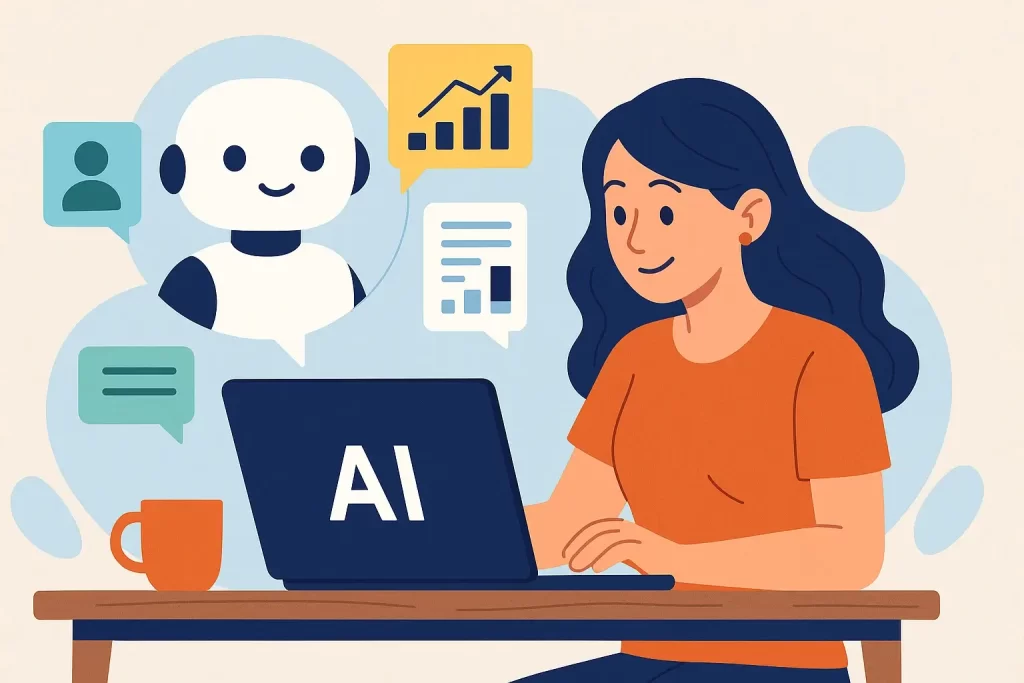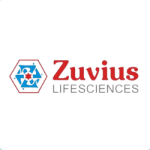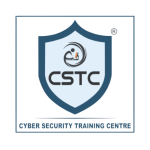Stop Guessing: Connect with Customers Using AI Tools

“They say it takes years to master a skill. However, using this framework, we mastered AI Marketing Tools for Personalization in a fraction of the time. Here’s how it works (so you can too).”
How I started connecting with AI Marketing Tools for Personalization
You know that feeling when a brand seems to get you? For example, they recommend the exact product you wanted. Their emails feel personal. The content? Like it was written just for you. In reality, it’s not luck. It’s AI Marketing Tools for Personalization.
I used to run campaigns based on gut feeling. Consequently, some worked, and some didn’t.
But when I started strategically using AI Marketing Tools for Personalization, something fundamentally changed.
Suddenly, I had data I could actually use. Therefore, I saw what people wanted and gave it to them. You can do the same. Here’s how.
Why Deploy AI Marketing Tools at All?
Your audience expects more. Specifically, they don’t want generic. They want relevant. Fast.
Moreover, AI Marketing Tools for Personalization let you deliver just that.
Furthermore, they analyze behavior, predict preferences, and customize content at scale, without requiring constant manual effort.
Ultimately, you can personalize your entire marketing stack, without burning out your team. Let’s break it down.
Take this quick quiz to see how well you understand the power of AI in delivering personalized customer experiences. Ready to test your knowledge?
AI Marketing Tools for Predictive Personalization
Think of personalization as more than just adding a first name to an email. Instead, with AI Marketing Tools for Personalization, you can show different messages to different people, automatically.
Consequently, the content adapts based on what they clicked, searched, bought, or ignored.
To illustrate, I once ran a split campaign using an AI-powered CRM: one version each for new visitors, returning buyers, and cart abandoners.
The results? A three-fold increase in clicks. However, the best part was that I didn’t write three different campaigns; rather, the tool adapted the content on its own, maximizing efficiency.
AI Marketing Tools for Data Analysis & ROI
Data is great. However, you can quickly drown in too much of it. Therefore, that’s where AI shines. Specifically, it sorts through the chaos, finds hidden patterns, and gives you actionable insights you’d miss on your own. For example, AI Marketing Tools can tell you when your customers are most likely to open emails, what topics drive more clicks, or what products are trending next week—all without hours spent in spreadsheets.
My Strategic Tip?
Start simple. In brief, feed your marketing data into one AI tool—HubSpot, Salesforce, or a Google Analytics instance with AI enabled. Then, let it show you the patterns. Finally, act on those patterns. Subsequently, you’ll start noticing significant shifts in what people want, which is where the magic of predictive marketing begins.
AI Marketing Tools for Content Velocity
Content creation used to consume significant time and resources. Specifically, days were spent writing, editing, and testing headlines. Now, AI Marketing Tools are used to outline, draft, and even test content before it goes live. Is it perfect? No. But it’s fast. Moreover, when I add my expert voice on top, the results become far more impactful and humanized. Therefore, AI supports creativity; it doesn’t replace it.
Here’s what I use for content velocity:
- Jasper for writing high-quality first drafts.
- Surfer SEO for optimizing blog posts based on competitive data.
- Chat-based tools for brainstorming strategic angles and outlines.
- Headline testers to A/B test subject lines for newsletters.
I still bring the human touch. However, AI helps me move faster and smarter.
So, what AI Marketing Tools should you try?
Here are a few I’ve tested and recommend for core personalization:
1. HubSpot CRM & AI
Their AI tools integrated within the CRM are robust. They are excellent for email automation, content personalization, and customer segmentation. You can confidently customize entire campaigns based on real user behavior.
- Try it: HubSpot AI tools
2. Dynamic Yield
This is a powerful tool for on-site personalization. Specifically, it changes what people see on your website based on their past visits and current intent. Therefore, it’s gold if you’re running an e-commerce brand or product-led business.
- Try it: Dynamic Yield
3. Salesforce Einstein
If you’re already on Salesforce, you’re sitting on a smart engine. Einstein helps predict what customers want next and automates messaging around that prediction. Consequently, it elevates your existing CRM investment.
- Try it: Salesforce Einstein
4. Google Recommendations AI
Perfect for online stores. It learns what people browse and suggests similar products—much like Netflix, but for shopping. This feature dramatically increases average order value (AOV).
5. Personyze
Think complete website personalization at scale. It dynamically adapts content, banners, and calls-to-action depending on the user’s real-time interaction.
- Try it: Personyze
Why Personalization Matters: The ROI
Let’s be honest—people ignore generic content. If your content isn’t relevant, it won’t get clicks. If your site feels generic, they’ll bounce. But when you effectively personalize the experience using AI Marketing Tools, they stick around. Consider the following:
- Netflix keeps you watching because the recommendations *feel* right.
- Spotify nails your mood with Discover Weekly.
- Amazon knows what you’ll buy before you do.
These aren’t happy accidents. In fact, they’re powered by AI, and consequently, they build loyalty.
Here’s what I’ve noticed in my work when using AI Marketing Tools for Personalization well:
- Higher Engagement: People click more when content feels tailored. I’ve seen email open rates jump by 25% just by tweaking subject lines using AI recommendations.
- More Conversions: Product suggestions based on predictive behavior convert better. One of my clients added a personalized “You might like” section and saw a 12% lift in sales.
- Better Retention: When users feel understood, they return. Ultimately, personalization turns one-time visitors into loyal fans.
How to Get Started with AI Marketing Tools
Don’t wait until you have perfect data. Instead, you can start small and scale up quickly.
Therefore, follow these simple, actionable framework steps:
1: Collect Better Data
Track how people use your site. Specifically, what do they click? Where do they drop off? Tools like Google Analytics 4 or Hotjar help you understand these crucial behavioral insights.
2: Segment Your Audience
Not all customers are the same. Consequently, split your list into types: new, loyal, cart abandoners, etc. AI can easily automate this inside tools like HubSpot or Klaviyo.
3: Create Smart Content
Use AI to help with personalized subject lines, content blocks that change based on the user, and dynamic product suggestions. Even your homepage can adapt based on who’s visiting.
4: Test and Improve
Let AI show you what’s working. Check key metrics like CTR, conversion rate, and bounce rate. Then, adjust. Furthermore, rinse. Finally, repeat.
5: Be Transparent
Tell users what data you collect. Always ask for consent. Let them opt out. Ultimately, trust is the fundamental core of effective personalization.
A Few Lessons I’ve Learned Along the Way
- Don’t overthink it: Your first campaign won’t be perfect. Ship it anyway.
- Start with one audience segment: Maybe returning customers. Focus there before trying to personalize everything.
- Use AI to *support*, not replace: It’s your strategic brain; not your boss.
- Watch for burnout: AI Marketing Tools help reduce the manual grind. Let them.
If you’re reading this and thinking, “I haven’t started yet,” that’s fine. Everyone starts somewhere. However, the key is starting with one small shift, one tool, and one test. AI isn’t just for big tech companies; it’s for solo marketers, small teams, and scrappy brands too. And when you use it right, it helps you do the one thing that never goes out of style:
Treat people like individuals.
Want help choosing the right AI Marketing Tool for your goals?
I can share a shortlist based on your team size and budget, just ask. Or if you’d rather DIY, subscribe to the newsletter for AI marketing tips that don’t feel robotic.
Let’s build smarter, more human marketing together.
FAQs: Mastering AI Marketing Tools for Personalization
Why are AI Marketing Tools essential for modern personalization?
AI Marketing Tools are essential because they handle the scale and speed of modern data. Consequently, they analyze massive datasets of user behavior (clicks, purchases, browsing) to predict future needs and automatically adapt content, offers, and timing in real-time. This moves personalization beyond basic name-insertion to true predictive relevance.
How can a small business afford to use AI Marketing Tools?
Small businesses can start with free or low-cost tools like Mailchimp’s AI features, Google Analytics, or Canva’s Magic Write. For example, focusing on one AI tool to automate one process (like subject line testing or cart abandonment emails) can generate immediate ROI that funds more advanced tools later. You don’t need a massive budget to begin.
What is the most critical first step when implementing AI personalization?
The most critical first step is establishing a reliable Data Foundation. Specifically, you must ensure your data collection and segmentation processes are accurate. Therefore, before deploying any AI Marketing Tool, focus on collecting high-quality, relevant data about user behavior so the AI engine has accurate inputs for its predictions.
















